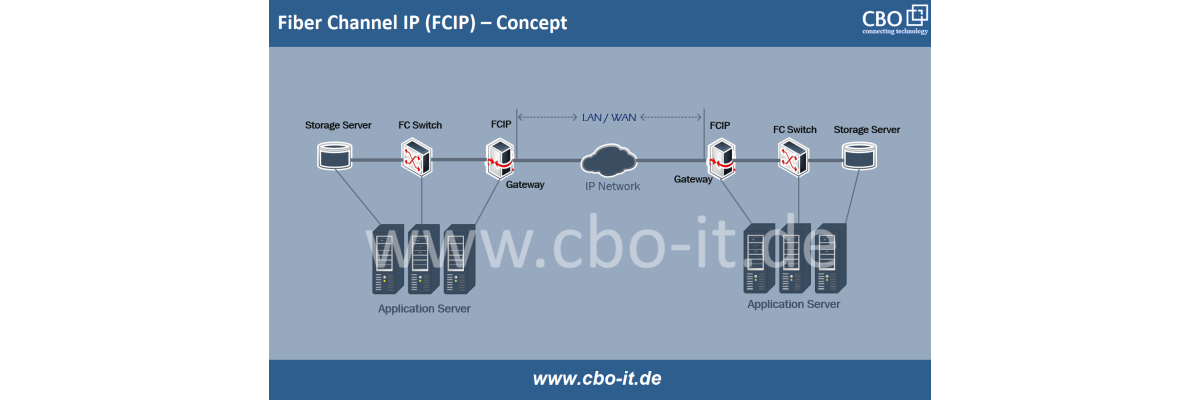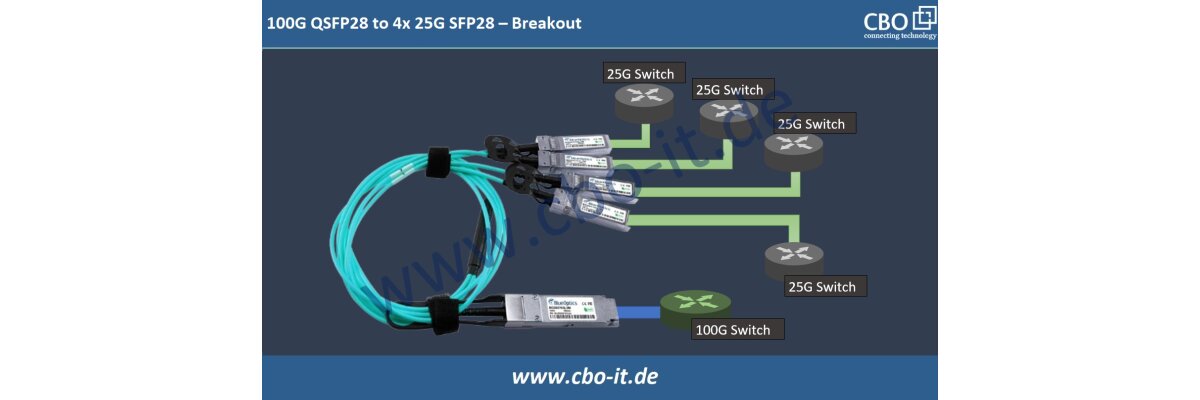Optical transceivers are considered critical for any optical fiber communication network. Any network`s deployment, operating and maintenance cost remains under the influence of transceivers cost. Unfortunately, OEM optical transceivers are very expensive and that’s why network operators prefer using third-party optical transceivers. However, there are numerous 3rd party transceiver suppliers operating in the market and the quality of networking hardware varies from vendor to vendor. Similar is the case with parts availability, technical support, and price. In this post, we will discuss choosing a reliable 3rd party transceiver vendor!
1. Check for Industry Certifications
The quality and reliability of the transceivers should be considered as a matter of prime focus while choosing a networking hardware supplier. As far as the optical transceivers are concerned, you must stick with the suppliers who tend to offer certified modules, developed and manufactured to fully comply with common certifications such as;
- CE (Construction Electrician)
- ISO9001
- RHS (Restriction of Hazardous Substances)
- FCC (Federal Communications Commission)
Moreover, the optical module offered by a 3rd party vendor must undergo vigorous testing before getting dispatched. Spectrum evaluation, TX/RX signal quality, compatibility, and stability tests are a few important ones related to optical modules. So, it's good if you can find a supplier who offers test reports or inspection reports such as; “eye pattern” along with the hardware. The following exhibit is showcasing information about standards compliance for an optical module.
In addition to this, a reliable vendor should operate with a specialized R&D team to innovate and optimize optical module technology and to ensure the reliability of transceivers. Therefore, the R&D strength of a vendor is an important factor to be kept in mind during the evaluation and selection phase of a supplier.
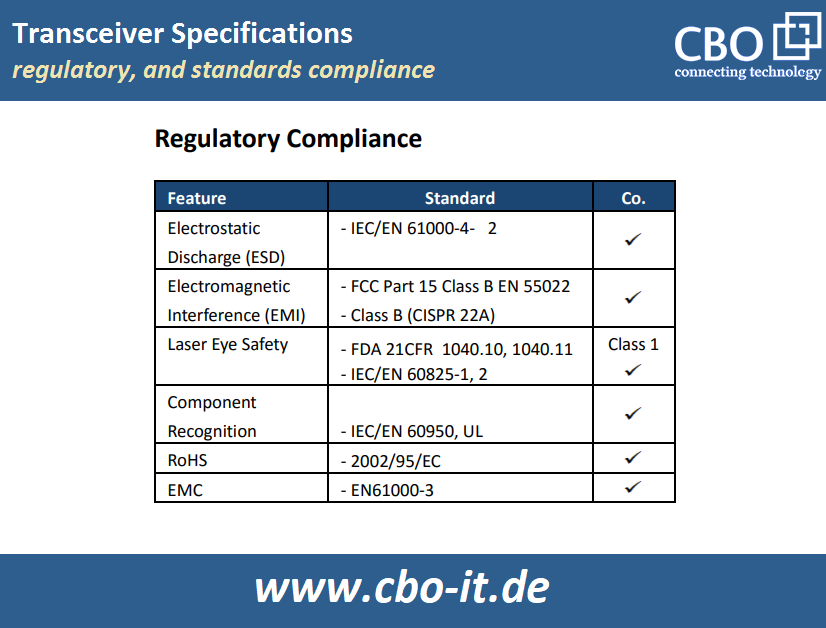
2. One Window Services
The service offered by 3rd party optical transceiver suppliers is also crucial. In our view, a vendor offering technical support, product service, after-sale service through one window or a single contact point will be easy to deal with than dealing with vendors who offer different services through different channels.
3. Comprehensive Product Portfolio
In our view, it is important to engage with a 3rd party transceiver vendor with a comprehensive and broad product portfolio. It means that the vendor you have chosen should not only provide a variety of transceivers but other networking hardware such as; optical fiber cables, copper cables, Ethernet switches as well. By dealing with such a versatile vendor, you will be able to save a lot in terms of human resources and networking budget. A vendor with a comprehensive portfolio will be able to assist you in your future expansions as well. The following exhibit is showcasing the portfolio of CBO;
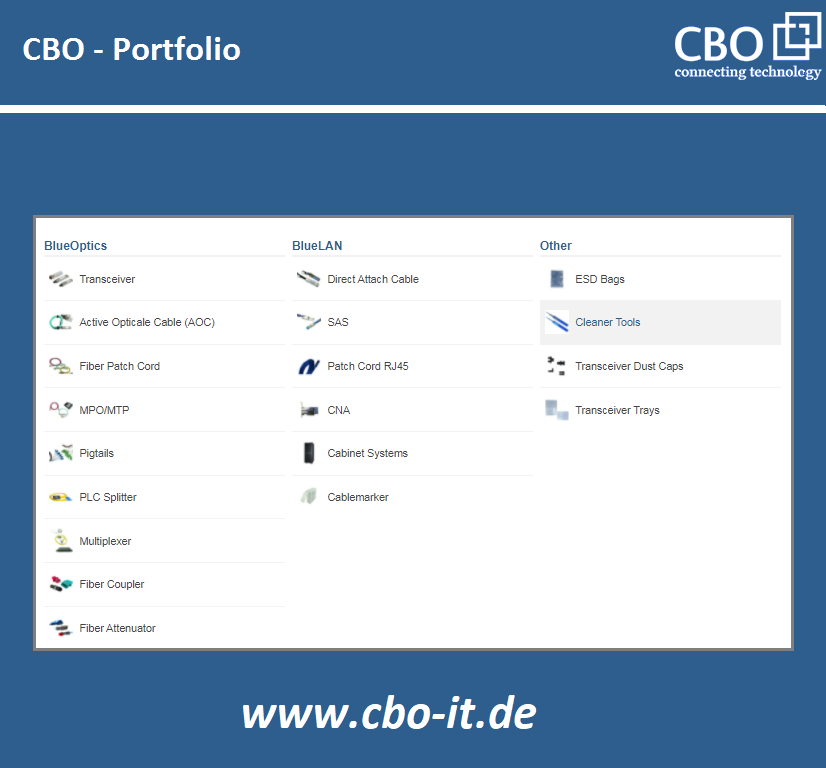
4. Quality of Technical Support
Often, small and medium-sized business enterprises operate with a minimal technical support team and of mediocre level. At times, your networking team might find it difficult to design the right network technology with the given resources. In such cases, the availability of quality technical support and resources on the vendor side can assist clients in resolving their network-related issues. Here, it is important to understand that you should operate with those vendors who remain open for your quarries as and when required.
5. Warranty Policy
Optical transceiver`s like other hardware tends to malfunction or getting faulted. It’s a norm in the networking industry that these modules are offered with certain warranties. However, some vendors offer their products with very twisted warranty policies. So, it is always safe and better for consumers that they should read and fully understand the stated warranty policy before inking the deal.
6. Product Compatibility
Optical transceivers are plugged into switches or routers. So, getting modules from a vendor who guarantees compatibility with more hardware vendors is a better choice. Before finalizing a deal, you must ensure that the module you have chosen from a particular vendor is compatible with the network switches or routers already installed. Quality vendors provide compatibility-related information on their websites or marketing material in black and white. The exhibit below is showing the compatibility checklist from CBO;
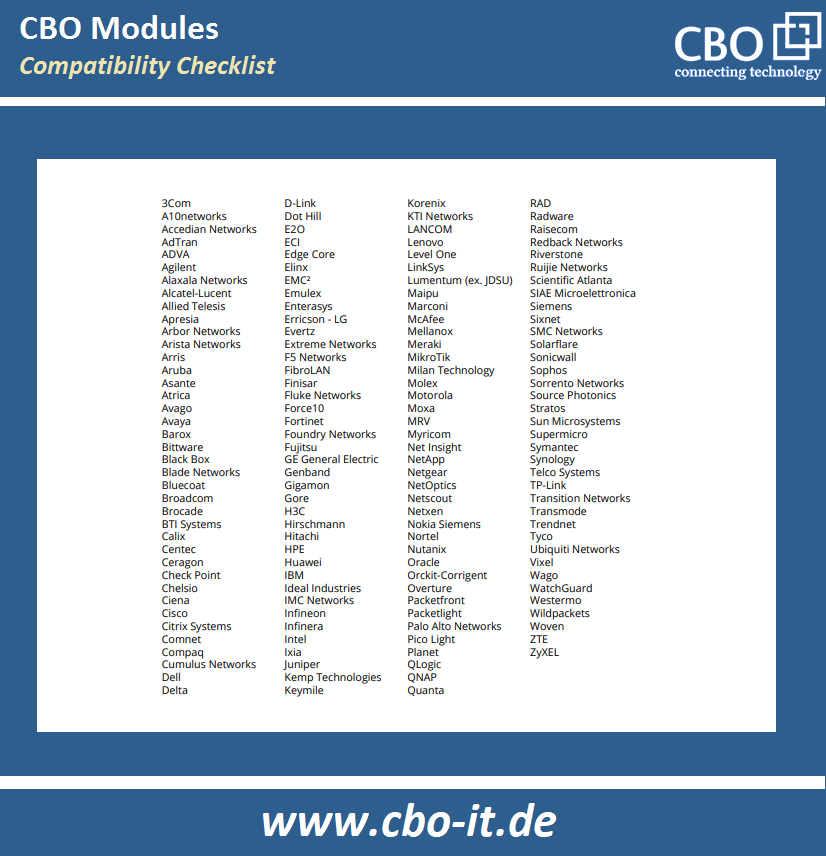
7. Effective Warehousing System
An efficient and effective warehousing system can ensure the delivery of goods in a timely fashion another benefit of an advanced or modern warehousing system is the automation of the entire ordering process. So, before you move on to place an order, just ensure that the warehousing system of your selected vendor is in optimum condition and reflecting the actual status of the product`s availability.
8. Robust Documentation
Believe us or not! Quality documentation can help you a lot in the deployment, configuration, and maintenance of your newly acquired optical modules or other networking hardware. Reputed vendors do offer comprehensive documentation for their products. However, many vendors prefer to rely on generic paperwork only! we suggest our readers refrain from later types of vendors. In the following exhibit, you can see a transceiver’s product manual.
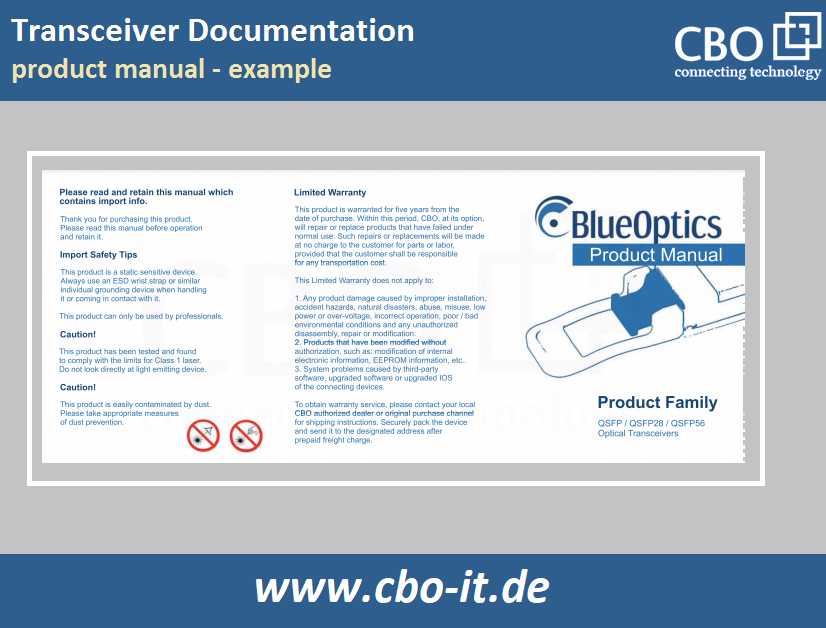
9. Ultra-Responsive Vendors
A well-established 3rd party transceiver supplier must offer reliable and fast service to help clients make the right decision. In addition to this, the after-sale services of optical transceivers and other networking hardware manufacturers must come with the required experience and capabilities to address customer issues quickly. Unfortunately, many vendors are operating in the market with a focus on increasing sales alone and they perform pathetically when their consumer suffering with troubling hardware seeks them for claiming warranting or for getting technical information.
Conclusion;
- Always buy networking hardware from renowned vendors
- Ensure that the hardware you are buying is manufactured in compliance with all the relevant industrial standards
- Prefer vendors who offer one-window services for sales, technical help, and after-sale services
- It is always better to operate with a vendor who has a comprehensive portfolio
- Always stick with vendors who have a straightforward and realistic warranty policy
 English
English
 Deutsch
Deutsch
 Espaniol
Espaniol






